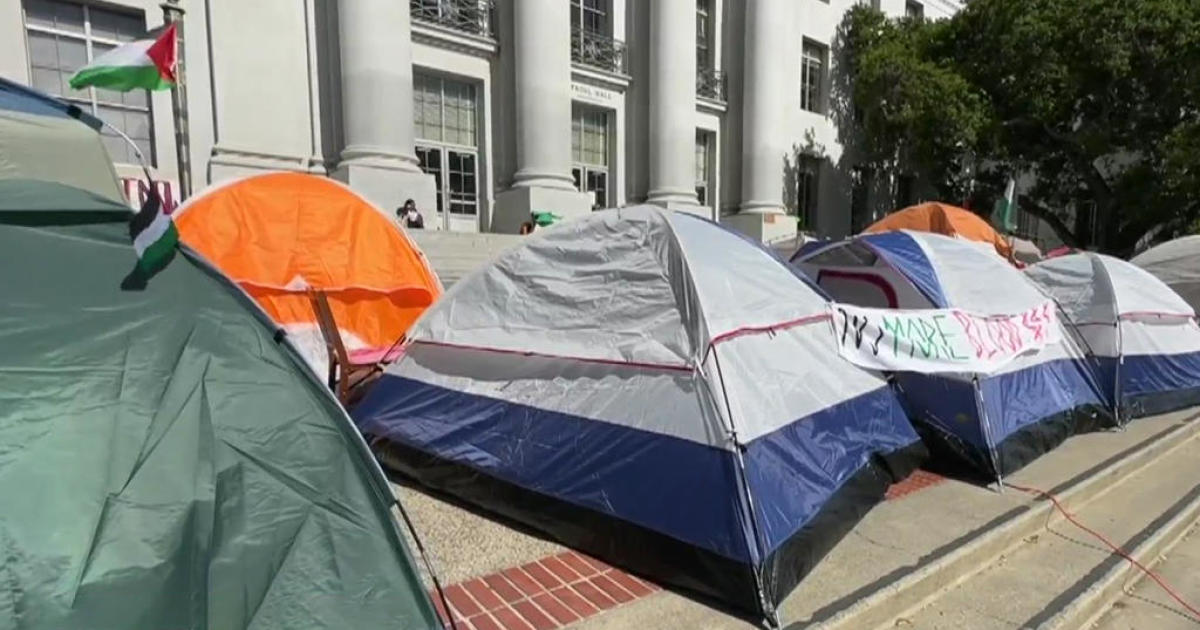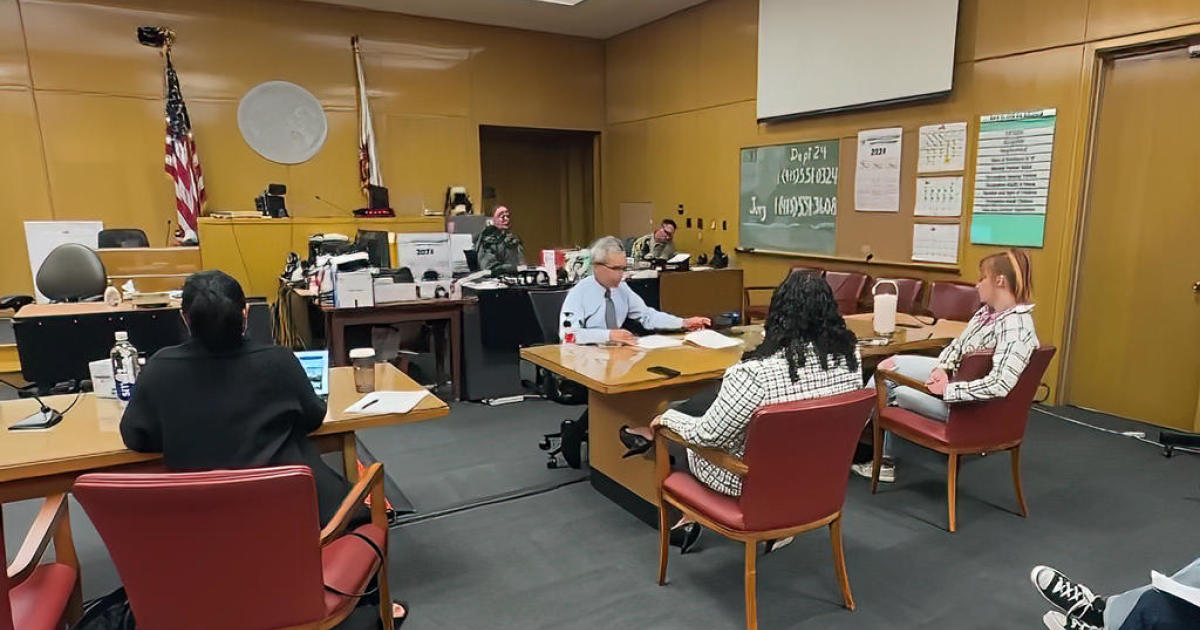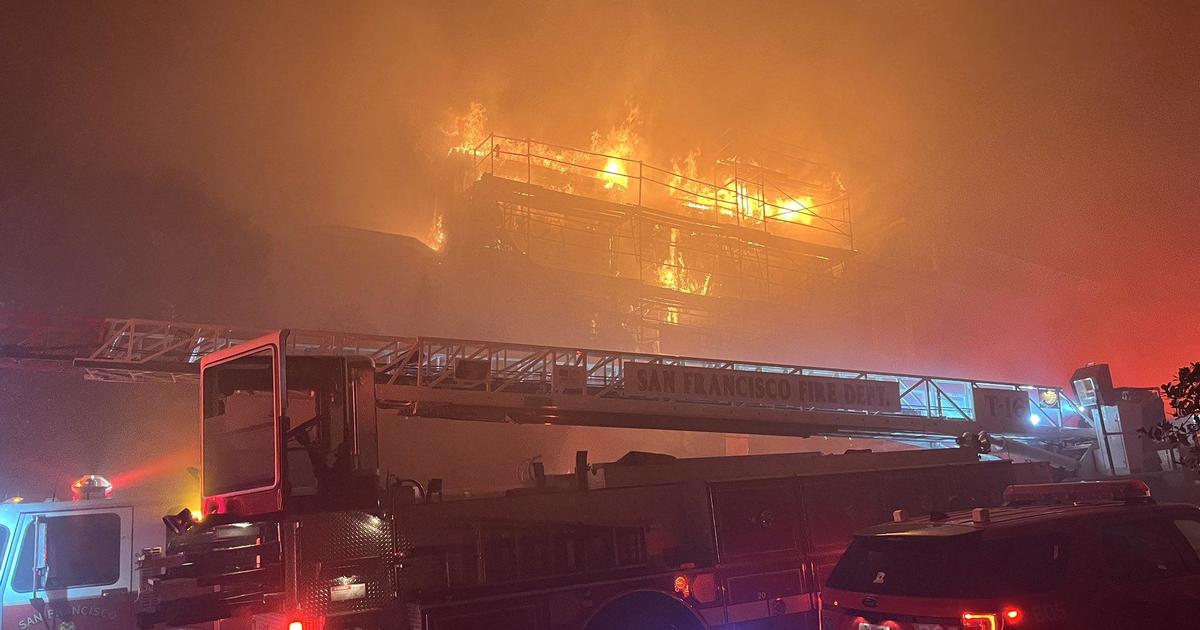Berkeley's Cellphone Radiation Warning Law Disputed Before Appeals Court
SAN FRANCISCO (CBS SF) -- Judges on a federal appeals court panel in San Francisco Tuesday questioned two prominent lawyers about whether a Berkeley cellphone warning law is unfairly alarming.
The 2015 Berkeley law, called the "right to know" ordinance, requires retailers to warn cellphone customers that wearing their device next to the body could result in exposure to radiofrequency radiation exceeding federal guidelines.
An industry group represented by Washington, D.C., attorney Theodore Olson claims the warning is misleading and violates the free speech rights of retailers by forcing them to provide a message they don't agree with.
Berkeley, represented by Harvard law professor Lawrence Lessig, contends the message is factually accurate and gives consumers information they need to make a choice about how to use their cellphones.
The three judges of the 9th U.S. Circuit Court of Appeals did not say how they will rule and will issue a written ruling at a later date.
But during a 45-minute hearing, they made comments suggesting concerns about whether the warning gives an incorrect impression about the safety of cell phones.
"I read that message to say, 'Uh-oh, I'm in trouble if I put it in my pocket," said Judge William Fletcher.
"(But) I may not be in trouble at all," he said.
Judge Michelle Friedland commented, "It seems there [is] a real downside to having unsupported warnings all over the place."
The third judge, Morgan Christen, told Olson, "I think your strongest argument is that people are going to be misled."
CTIA-The Wireless Association, formerly called the Cellular Telephone Industries Association, is appealing a decision in which U.S. District Judge Edward Chen of San Francisco last year declined to grant a preliminary injunction blocking implementation of the law.
The association contends the message is misleading because the Federal Communications Commission's standards provide an ample margin of safety and the agency has never said that wearing a cellphone close to the
body is unsafe.
"Berkeley's cellphone ordinance mandates an alarming point of view intended to change consumers' behavior," Olson argued.
The message "is squarely contrary to science, facts and the FCC's carefully considered findings that cellphones sold in the United States are safe to use," he said.
Olson, of Washington, D.C., successfully represented George W. Bush before the U.S. Supreme Court in the 2000 presidential election dispute and later represented same-sex couples seeking a right to marry in a case
that began in federal court in San Francisco.
Berkeley claims that every sentence of the message is true and that it is in keeping with information the FCC requires manufacturers to include in user manuals.
That information, according to the city, is that in the tests that resulted in the radio frequency limits, testers used accessories that slightly separated the phones from their bodies.
The message states, "To assure safety, the federal government requires that cellphones meet radio frequency (RF) exposure guidelines.
"If you carry or use your phone in a pants or shirt pocket or tucked into a bra when the phone is ON and connected to a wireless network, you may exceed the federal guidelines for exposure to RF radiation," it continues.
"Refer to the instructions in your phone or user manual for information about how to use your phone safely," the message concludes.
The 2015 ordinance requires retailers either to post the message or to give people who buy or lease phones a paper copy of the warning.
Lessig told the court, "Our position is that we are relying on regulations of the FCC. We don't want to get into the science. We don't have to get into the science."
"These statements are absolutely true," he said.
Lessig, an expert in constitutional and ethics law, briefly sought the Democratic presidential nomination last fall on a platform of campaign finance reform.
The Berkeley law went into effect this year after U.S. District Judge Edward Chen and the 9th Circuit turned down a CTIA request to block it temporarily during the appeal.
The panel has no deadline for ruling on the case.



